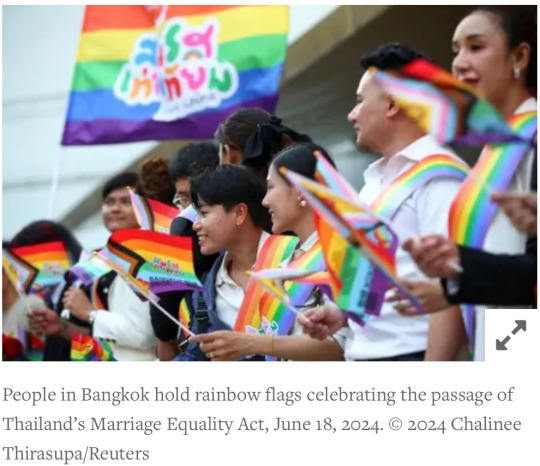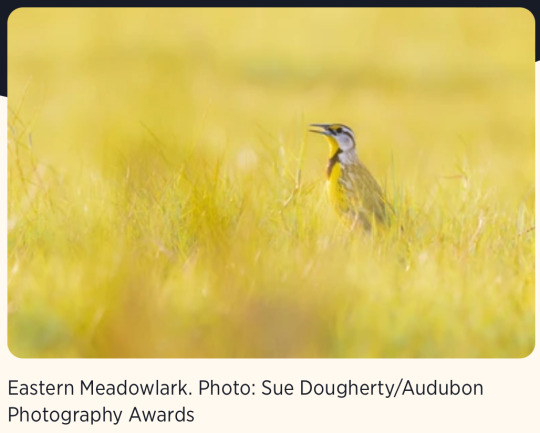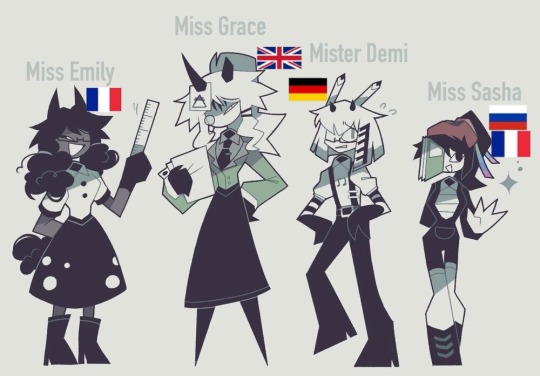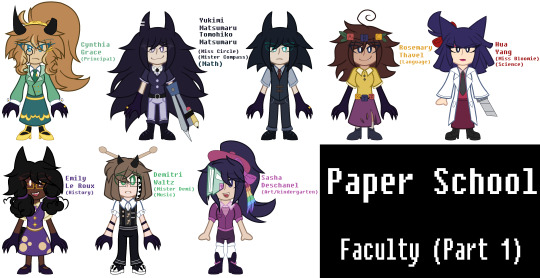#compassion in education
Explore tagged Tumblr posts
Text
Planting Seeds of Compassion in a Digital Age
A Classroom Kit for Teaching AI + SEL with Heart As artificial intelligence becomes a bigger part of our lives, a new question is blooming in the minds of educators: How can we help children not only use AI—but relate to it with empathy, wisdom, and kindness? This class material offers one answer: a vibrant, age-appropriate toolkit for K–5 learners that blends AI literacy, ethics, and…
#ai#AI classroom posters#AI education for kids#AI for K-5 students#AI literacy#artificial intelligence#building ethical AI#character education#classroom activities with AI#classroom ethics#compassion in education#digital citizenship#education#elementary AI curriculum#emotional learning and AI#empathy for AI#ethical AI#future-ready classrooms#humane technology education#inclusive AI education#mindful technology use#responsible AI use#robots in the classroom#SEL classroom resources#social-emotional learning#teacher AI resources#teaching#teaching empathy#teaching future skills#teaching kindness
1 note
·
View note
Text
Good News - June 15-21
Like these weekly compilations? Tip me at $Kaybarr1735! And if you tip me and give me a way to contact you, at the end of the month I'll send you a link to all of the articles I found but didn't use each week!
1. Victory for Same-Sex Marriage in Thailand

“Thailand’s Senate voted 130-4 today to pass a same-sex marriage bill that the lower house had approved by an overwhelming majority in March. This makes Thailand the first country in Southeast Asia, and the second in Asia, to recognize same-sex relationships. […] The Thai Marriage Equality Act […] will come into force 120 days after publication in the Royal Gazette. It will stand as an example of LGBT rights progress across the Asia-Pacific region and the world.”
2. One of world’s rarest cats no longer endangered

“[The Iberian lynx’s] population grew from 62 mature individuals in 2001 to 648 in 2022. While young and mature lynx combined now have an estimated population of more than 2,000, the IUCN reports. The increase is largely thanks to conservation efforts that have focused on increasing the abundance of its main food source - the also endangered wild rabbit, known as European rabbit. Programmes to free hundreds of captive lynxes and restoring scrublands and forests have also played an important role in ensuring the lynx is no longer endangered.”
3. Planning parenthood for incarcerated men
“[M]any incarcerated young men missed [sex-ed] classroom lessons due to truancy or incarceration. Their lack of knowledge about sexual health puts them at a lifelong disadvantage. De La Cruz [a health educator] will guide [incarcerated youths] in lessons about anatomy and pregnancy, birth control and sexually transmitted infections. He also explores healthy relationships and the pitfalls of toxic masculinity. […] Workshops cover healthy relationships, gender and sexuality, and sex trafficking.”
4. Peru puts endemic fog oasis under protection

“Lomas are unique ecosystems relying on marine fog that host rare and endemic plants and animal species. […] The Peruvian government has formally granted conservation status to the 6,449-hectare (16,000-acre) desert oasis site[….] The site, the first of its kind to become protected after more than 15 years of scientific and advocacy efforts, will help scientists understand climatic and marine cycles in the area[, … and] will be protected for future research and exploration for at least three decades.”
5. Religious groups are protecting Pride events — upending the LGBTQ+ vs. faith narrative

“In some cases, de-escalation teams stand as a physical barrier between protesters and event attendees. In other instances, they try to talk with protesters. The goal is generally to keep everyone safe. Leigh was learning that sometimes this didn’t mean acting as security, but doing actual outreach. That might mean making time and space to listen to hate speech. It might mean offering food or water. […] After undergoing Zoom trainings this spring, the members of some 120 faith organizations will fan out across more than 50 Pride events in 16 states to de-escalate the actions of extremist anti-LGBTQ+ hate groups.”
6. 25 years of research shows how to restore damaged rainforest
“For the first time, results from 25 years of work to rehabilitate fire-damaged and heavily logged rainforest are now being presented. The study fills a knowledge gap about the long-term effects of restoration and may become an important guide for future efforts to restore damaged ecosystems.”
7. Audubon and Grassroots Carbon Announce First-of-its-Kind Partnership to Reward Landowners for Improving Habitats for Birds while Building Healthy Soils

“Participating landowners can profit from additional soil carbon storage created through their regenerative land management practices. These practices restore grasslands, improve bird habits, build soil health and drive nature-based soil organic carbon drawdown through the healthy soils of farms and ranches. […] Additionally, regenerative land management practices improve habitats for birds. […] This partnership exemplifies how sustainable practices can drive positive environmental change while providing tangible economic benefits for landowners.”
8. Circular food systems found to dramatically reduce greenhouse gas emissions, require much less agricultural land
“Redesigning the European food system will reduce agricultural land by 44% while dramatically reducing greenhouse gas emissions from agriculture by 70%. This reduction is possible with the current consumption of animal protein. “Moreover, animals are recyclers in the system. They can recycle nutrients from human-inedible parts of the organic waste and by-products in the food system and convert them to valuable animal products," Simon says.”
9. Could Treating Injured Raptors Help Lift a Population? Researchers found the work of rehabbers can have long-lasting benefits

“[“Wildlife professionals”] tend to have a dismissive attitude toward addressing individual animal welfare,” [… but f]or most raptor species, they found, birds released after rehabilitation were about as likely to survive as wild birds. Those released birds can have even broader impacts on the population. Back in the wild, the birds mate and breed, raising hatchlings that grow up to mate and breed, too. When the researchers modeled the effects, they found most species would see at least some population-level benefits from returning raptors to the wild.”
10. Indigenous people in the Amazon are helping to build bridges & save primates

“Working together, the Reconecta Project and the Waimiri-Atroari Indigenous people build bridges that connect the forest canopy over the BR-174 road[….] In the first 10 months of monitoring, eight different species were documented — not only monkeys such as the golden-handed tamarin and the common squirrel monkey (Saimiri sciureus), but also kinkajous (Potos flavus), mouse opossums (Marmosops sp.), and opossums (Didelphis sp.).”
Bonus: A rare maneless zebra was born in the UK
June 8-14 news here | (all credit for images and written material can be found at the source linked; I don’t claim credit for anything but curating.)
#hopepunk#good news#lgbtq#gay rights#gay marriage#same sex marriage#thailand#lynx#big cats#cats#endangered species#endangered#sex education#prison#peru#conservation#habitat#religion#pride#faith#pride month#lgbt pride#compassion#rainforest#birds#nature#climate change#wildlife rehab#wildlife#indigenous
1K notes
·
View notes
Text

#twitter#tweet#tweets#revolution#hope#love#compassion#education#humanity#enemies#food#healthcare#human rights#human rights are for EVERYONE
96 notes
·
View notes
Text
"They FAILED?!"

Hello, H0LL0W/mod here, these three(especially thavel) have been running rampant in my mind so why not make a blog for them?
❀┈┈┈┈┈┈┈┈┈┈❀
HEADCANONS(half of these are canon!)
(I'll start with canon first.)
☆— Out of Miss Thavel, Miss Bloomie, and Miss Circle, Miss Bloomie is the shortest of the three.
☆— Out of Miss Thavel, Miss Bloomie, and Miss Circle, Miss Thavel is the youngest of the three.
☆— Out of Miss Thavel, Miss Bloomie, and Miss Circle, Miss Circle is the tallest of the three.
☆— Miss Circle is 38, Miss Thavel is 35, and Miss Bloomie is 36.
☆— Oliver, Zip, and Edward are Miss Circle's favorite students.
☆— Miss Circle pefers Oreos and hates Kit-Kats.
(Now my headcanons)
☆— Miss Bloomie likes macaroons!
☆— Miss Thavel's wendigo form does have soft fur, even if sometimes it gets all matted with blood and pencils.
☆— Miss Circle hates vending machines with a passion.
☆— Miss Bloomie's favorite students are Edward, Robby, and Ruby.
☆— Miss Thavel's favorite student is Zip.
☆— Miss Circle hates laser pointers because they're "so hard to catch."
☆— Miss Bloomie has those second eyelid things some birds, cats, and snakes have.
☆— After school, Miss Thavel sometimes will fall asleep at her desk or random spots, laying there like one of those silly huge dogs.
☆— Miss Circle can use her hair as a blanket, which, to her dismay, has become a big hit with the kindergarteners.
☆— Psst. For the tickle community, Miss Bloomie's stomach is a weak spot, Miss Thavel's back and legs are sensitive, and Miss Circle will pretend she's not ticklish but go for the thighs and arms!
❀┈┈┈┈┈┈┈┈┈┈❀
RULES
No NSFW, I know the three are in their mid—late 30s, but no NSFW at all.
Do not force me to role-play with you, that can be quite annoying/irritating.
No spam.
No donation/Gaza asks, I don't have money to give you, and just like spam, this fills up the inbox.
❀┈┈┈┈┈┈┈┈┈┈❀
Ping time!
❀┈┈┈┈┈┈┈┈┈┈❀
Fellow Staff(FPE/EDGYVERSE)
@math-teacher-who-loves-oreos @miss-bloomies-science-class @wendigo-language-teacher @pansexual-music-teacher @lesbian-history-teacher @ask-principal-grace @best-art-teacher-miss-sasha @ask-mister-barrel @mister-hotchkiss-craft-teacher @janitor-mister-broomire @cosmic-astronomy-teacher @scizz-anatomy-teacher @ask-the-alert-brothers @ask-misscledor-anything
Students!
@ask-margaret-sterling @marvin-sterlinggg @oliversoapeater-official @zip-the-chaos-child @3dward-th3-s1lly @engels-ask-blog @askclairefpe @lana-and-her-sockpuppets @abbie-appleboy @sopibub @abbie-the-apple @emo-kitty-skell @riley-crazy-kid @rabies-infested-riley @zip-the-chaos-child @science-au-oliver006 @dragon-pirate-zip
Other
@yourlocalthief-ralph @ask-princess-alice-anything @alice-monstrous-princess @cannibalistic-forest-god @agethath3silly @viviansmagicshop @official-crazie @girl-from-the-snowy-forest @cannibalistic-forest-monster
❀┈┈┈┈┈┈┈┈┈┈❀
"Miss Thavel will talk like this."
"Miss Circle will talk like this."
"Miss Bloomie will talk like this."
Mod will talk like this!
❀┈┈┈┈┈┈┈┈┈┈❀
"BLOOMIE WE DON'T NEED THE HEADERS-"
"But-"

#fpe#fundemental paper education#fpe miss circle#fpe mister demi#fpe miss sasha#fpe miss bloomie#fpe miss emily#fpe miss thavel#fpe miss grace#fpe mister compass#fpe alice#ask blog#claire fpe#fpe engel#fpe claire#fpe zip#fpe oliver#fpe edward
69 notes
·
View notes
Quote
Great is the person who does good always, in sickness and in health, in riches and in poverty.
Abhijit Naskar, The Education Decree
#quotes#Abhijit Naskar#The Education Decree#thepersonalwords#literature#life quotes#prose#lit#spilled ink#brainy-quotes#compassion#good-and-evil#goodness#greatness#greatness-quotes#inspirational#inspiring#kindness#love-and-kindness#motivational#serving-others
26 notes
·
View notes
Text

#pay attention#educate yourselves#educate yourself#knowledge is power#reeducate yourself#reeducate yourselves#think about it#think for yourselves#think for yourself#do your homework#do some research#do your research#do your own research#ask yourself questions#question everything#evil is good godd is evil#moral compass#brainwashing
117 notes
·
View notes
Text
FPE nationality headcanons
I would post these on my TT but I feel like if I did I would be ripped to shreds.
Anyways, these are my headcanons/opinions, please don't attack me over them. If you don't like them, please just scroll past.






(I'm sorry Ruby)
#fpe#fpe fandom#fundamental paper education#fpe miss grace#fpe mister demi#fpe miss emily#fpe miss sasha#fpe miss thavel#fpe miss circle#fpe miss bloomie#engel fpe#claire fpe#fpe abbie#fpe lana#fpe riley#fpe ruby#fpe skell#fpe robby#fpe headcanons#fpe mister compass#YES I HEADCANON LIZZY AND KEVIN AS SIBLINGS GRAH-
29 notes
·
View notes
Note
Chloe having the lowest IQ is also inconsistent when Kim almost always has a joke about how stupid he is each time he makes an appearance.
Very true. This is the difference between being uneducated and having some form of diminished capacity.
Chloé knows nothing about other cultures and mispronounces words she does not know, but generally she responds in coherent ways with a skewed but reasonable line of thought.
Kim legitimately does not brain. The boy put swim trunks on for a train ride because the train went 'under water'. There are trains all over France. The boy is not unaware of how trains work(generally).
#ask#In any event a lack of education or capacity should be treated with compassion#I think a lack of compassion is accurate for TA#miraculous ladybug
25 notes
·
View notes
Text
ThavelCompass lol ✨

I know That Mister Compass is dating Miss Circle, but I'm more of a Ciroomie shipper. So-
#fundamental paper education#fpe#fpe miss circle#fpe miss thavel#fpe mister compass#miss thavel x mister compass#mister compass x miss thavel#thavelcompass#fpe fandom#rarepair
26 notes
·
View notes
Note
When people say a moral compass what do they in depth really mean. Does it mean u know it’s illigal to do something and could end up in jail or?
I guess I see life a free for all in the way of not following specific ways of functioning and doing things.
Do people actually think oh this is a good thing or a bad thing I’m doing?
I'd say, that it will depend on the person, what exactly they mean in a certain situation/conversation, because people do give individual meaning to words.
Generally, a moral compass is "used in reference to a person's ability to judge what is right and wrong and act accordingly".
=> Thus your moral compass should tell you which behaviors are "right" and which are "wrong" aka what you "should" and "should not" do. This is an absolutely terribly defined concept overall, because moral guidelines as to, what is right/wrong, differ in like...every single context and within every single group. We may like to believe, that we have "global moral guidelines", but we don't really? Theres a few concepts, that the majority does follow in some way sure, but even those concepts they have shaped and edited to their liking and coated in their individual understanding of the words!
"Do not harm others" is probably the most global moral guideline we have somehow come up with (I think) and yet every single person who sees this post is going to have their own definition for what constitutes harm, what is "doing" harm and what is "allowing harm" (are you actively harming if you just watch? => philosophical af question) and whether or not there should be exceptions for specific situations/people. Its a guideline that is added upon in ways like "Do not harm others unless they are/did x", or "Do not do *specific* harm to others, but *other thing* is okay" etc. => These individual interpretations are based on ones personal experiences and the things one is taught by any type of socialization moment. There is technically no right or wrong interpretation of any moral guideline, because a general consensus that could define an actual rule, is just not given thanks to our individual way of stuff. Like we could never actually agree on a global definition of "Do not harm others", because:
1. We could never actually reach every single person in this world.
2. We could not ask the question with the same wording to everyone. We'd have to translate and since the word equivalent for something in another language already has its own "heaviness" and "meaning" defined, a translation is never 100% accurate.
3. Thanks to different political beliefs, religious beliefs, personal bad/good experiences, etc. people have biases and those are sometimes literally black and white. If one person is on the white side of the belief and the other on the black side of the belief, we'll never get them to agree on something they're both happy with (or its at least very unlikely to achieve this for every single case).
So "right" and "wrong" have really individual meanings and thus your moral compass is your individual judgement of what is "right" and "wrong" and never entirely based on a global understanding of those words. When you act, even if you act terribly "wrong" in the eyes of others, those acts may be "right" according to your own moral compass, thus you are indeed acting accordingly. People often don't even think about whether something is right or wrong! They just...act automatically.
Now comes the interesting part: If your behavior happens to be one, that to you personally, looks morally right, but to others looks morally wrong and you are experiencing difficulties due to showing that behavior, you may indeed ask yourself "Is this gonna be perceived as right or wrong", before you do something. That can include asking yourself if something is illegal/will lead to you being in jail, since that is usually stuff people see as "wrong" (as in...theres a societal tendency for certain stuff to be seen as wrong, but again no one actually sees it 100% the same. we just sorta took those tendencies and either made them law, or someone made their individual tendency law and then people started believing in that).
This sorta feels like its all over the place, so long story short: Your moral compass is your personal understanding of what is right & wrong. People sometimes use it differently and assume all moral compasses are prosocially motivated and that if yours isn't, you don't have one. Thats technically wrong (technically cus...right & wrong doesn't actually exist but shh we're getting too philosophical and also we don't know cus the word prosocial doesn't have a global definition either...no word does). Really we are just trying to worm our way trough life, adjusting the guidelines of our actions depending on who we deal with and what benefits us. Its rare that people actually have a rigid moral compass, often that thing is flowing around quicker than a stream of piss 👍🏻 Hope that answers your question somehow xD
#actually aspd#aspd#mental health#mental health education#asks open#asks#send asks#moral compass#we constantly adjust the compass based on new info and the ppl we're around#and everything is way too individual for anything to have a global meaning so we communicate and deal with tendencies#society has moral tendencies you're jailed baed upon but every individual has a different opinion on those#theres no actual “moral social rules” everyone follows. concepts sure maybe (also individualized) but never rules#ok I'm done now this is fun
17 notes
·
View notes
Text
Teaching Compassion to Kindergarten Children: A Heartfelt Curriculum
Compassion is a vital quality we can nurture from a young age. Teaching kindergarten children about compassion not only helps them develop empathy but also fosters a caring and supportive environment. Here’s a structured curriculum to introduce the concept of compassion in an engaging and age-appropriate way. Week 1: Introduction to CompassionStart with a story like “The Giving Tree” by Shel…
#children’s books on compassion#community involvement for children#compassion curriculum#compassion in education#early childhood education#educational activities for young children#emotional intelligence for children#empathy in the classroom#engaging classroom activities#fostering kindness#gratitude lessons#interactive learning activities#kindergarten compassion lessons#kindness activities for kids#kindness projects#kindness stories for kids#nurturing empathy#social-emotional learning#teaching empathy#teaching feelings to kids
0 notes
Text

Canon teachers already complete!
Notes:
Miss Grace is married to someone outside the school in my little take (Or it could be a future teacher OC who knows)
Mister Compass and Miss Circle are married here~!
Mister Demi and Miss Sasha are dating!
It's been a long time since I've written in Chinese so Miss Bloomie's name may be changed if it's inaccurate, please don't roast me too hard-/gen
#fundamental paper education#fpe fanart#fpe miss grace#fpe miss circle#fpe mister compass#fpe miss thavel#fpe miss bloomie#fpe miss emily#fpe mister demi#fpe miss sasha
20 notes
·
View notes
Text
The Philosophy of Buddhism
Buddhism is a spiritual and philosophical tradition that originated in India around the 5th century BCE with the teachings of Siddhartha Gautama, known as the Buddha. Buddhism encompasses a wide range of beliefs, practices, and schools of thought, but at its core, it is concerned with understanding the nature of suffering, the path to its cessation, and the ultimate realization of enlightenment.
Key Themes in the Philosophy of Buddhism:
The Four Noble Truths:
Dukkha (Suffering): The first noble truth is the recognition that life is permeated by dukkha, often translated as suffering, dissatisfaction, or stress. This includes both the obvious sufferings of pain, aging, and death, as well as more subtle forms of mental unease and dissatisfaction.
Samudaya (Origin of Suffering): The second noble truth identifies the cause of suffering as tanha (craving or desire) and ignorance (avidya). This craving is not only for physical pleasures but also for existence, non-existence, and various forms of attachment.
Nirodha (Cessation of Suffering): The third noble truth asserts that it is possible to end suffering by extinguishing its causes, namely craving and ignorance. This state of cessation is known as Nirvana, which represents the ultimate liberation from the cycle of rebirth and suffering.
Magga (Path to the Cessation of Suffering): The fourth noble truth outlines the path to the cessation of suffering, known as the Noble Eightfold Path. This path provides a practical guide to ethical living, mental discipline, and wisdom.
The Noble Eightfold Path:
Right Understanding (Samma Ditthi): This involves understanding the true nature of reality, particularly the Four Noble Truths.
Right Intention (Samma Sankappa): Cultivating intentions of renunciation, goodwill, and harmlessness.
Right Speech (Samma Vaca): Speaking truthfully, avoiding gossip, lies, and harmful speech.
Right Action (Samma Kammanta): Acting in ways that are ethical and non-harmful, following principles like non-violence and honesty.
Right Livelihood (Samma Ajiva): Engaging in work that does not harm others and is ethically sound.
Right Effort (Samma Vayama): Cultivating positive states of mind and preventing unwholesome states.
Right Mindfulness (Samma Sati): Maintaining awareness of thoughts, feelings, and actions, leading to greater self-understanding and wisdom.
Right Concentration (Samma Samadhi): Developing deep states of meditation that lead to profound insights and the cultivation of wisdom.
The Three Marks of Existence:
Anicca (Impermanence): Everything in life is in a constant state of flux. All phenomena are transient, and clinging to anything as permanent leads to suffering.
Dukkha (Suffering): Suffering is an inherent part of existence, arising from the impermanent and unsatisfactory nature of life.
Anatta (Non-Self): There is no permanent, unchanging self or soul (atman). The belief in a permanent self is an illusion that contributes to suffering.
Karma and Rebirth:
Karma (Action and Consequence): Karma refers to the moral law of cause and effect, where intentional actions lead to corresponding consequences. Good actions lead to positive results, and bad actions lead to negative outcomes, both in this life and future lives.
Rebirth (Samsara): Buddhism teaches that beings are trapped in a cycle of birth, death, and rebirth (samsara), driven by karma and craving. The ultimate goal is to escape this cycle by attaining Nirvana.
Nirvana:
Liberation from Suffering: Nirvana is the ultimate goal in Buddhism, representing the cessation of all suffering, the end of the cycle of rebirth, and the realization of ultimate truth. It is a state of peace, liberation, and enlightenment.
Beyond Dualities: Nirvana transcends all dualities and conceptual distinctions, including the dichotomy of existence and non-existence.
Meditation and Mindfulness:
Central Practices: Meditation (bhavana) and mindfulness (sati) are central practices in Buddhism, aimed at cultivating concentration, insight, and mental clarity. These practices help individuals develop a deep understanding of the nature of reality and the mind.
Vipassana and Samatha: Two main types of meditation in Buddhism are Vipassana (insight meditation), which focuses on gaining insight into the true nature of reality, and Samatha (calm-abiding meditation), which develops concentration and tranquility.
The Middle Way:
Avoiding Extremes: The Buddha taught the Middle Way as a path that avoids the extremes of self-indulgence and self-mortification. It represents a balanced approach to spiritual practice that leads to enlightenment.
Practical Wisdom: The Middle Way also refers to the balanced application of wisdom in everyday life, guiding ethical conduct and mental development.
Dependent Origination (Pratītyasamutpāda):
Interconnectedness of All Phenomena: Dependent origination is the principle that all phenomena arise in dependence upon other phenomena. This interconnectedness means that nothing exists independently, and everything is part of a complex web of cause and effect.
Causality and the Cycle of Suffering: Understanding dependent origination is key to understanding the cycle of suffering (samsara) and how to break free from it.
Ethical Conduct:
The Five Precepts: Buddhism provides a set of ethical guidelines known as the Five Precepts, which include abstaining from killing, stealing, sexual misconduct, lying, and intoxication. These precepts help cultivate moral discipline and support the path to enlightenment.
Compassion and Loving-Kindness (Metta): Compassion (karuna) and loving-kindness (metta) are central ethical values in Buddhism, encouraging individuals to act with care and concern for the well-being of others.
Schools of Buddhist Philosophy:
Theravada Buddhism:
Focus on Early Teachings: Theravada, also known as the "Teaching of the Elders," adheres closely to the early teachings of the Buddha and emphasizes individual liberation through wisdom and ethical conduct.
Arhat Ideal: The goal in Theravada is to become an Arhat, an enlightened being who has attained Nirvana and is free from the cycle of rebirth.
Mahayana Buddhism:
Great Vehicle: Mahayana, or the "Great Vehicle," offers a broader interpretation of the Buddha's teachings and emphasizes the Bodhisattva path, where practitioners strive to attain enlightenment for the benefit of all beings.
Emptiness (Shunyata): Mahayana philosophy introduces the concept of emptiness, which suggests that all phenomena are empty of inherent existence, highlighting the interdependence and impermanence of all things.
Vajrayana Buddhism:
Diamond Vehicle: Vajrayana, or the "Diamond Vehicle," is an esoteric form of Buddhism that incorporates rituals, mantras, and meditation practices aimed at achieving rapid enlightenment. It is closely associated with Tibetan Buddhism.
Tantric Practices: Vajrayana involves complex tantric practices that are believed to transform the mind and body, leading to enlightenment.
The philosophy of Buddhism is a profound exploration of the nature of existence, suffering, and the path to liberation. Through its teachings on impermanence, non-self, dependent origination, and the cultivation of compassion, Buddhism offers a comprehensive framework for understanding and overcoming the challenges of life. Its emphasis on mindfulness, ethical conduct, and wisdom provides practical guidance for achieving inner peace and spiritual awakening. Whether through individual practice or engagement with the broader community, Buddhism continues to inspire and guide people in their quest for meaning, peace, and liberation.
#philosophy#epistemology#knowledge#learning#education#chatgpt#ontology#metaphysics#ethics#Buddhism#Four Noble Truths#Noble Eightfold Path#Dukkha (Suffering)#Anicca (Impermanence)#Anatta (Non-Self)#Karma and Rebirth#Nirvana#Meditation and Mindfulness#Middle Way#Dependent Origination#Theravada Buddhism#Mahayana Buddhism#Vajrayana Buddhism#Engaged Buddhism#Buddhist Ethics#Buddhist Philosophy#Bodhisattva Path#Compassion (Karuna)#Loving-Kindness (Metta)#Mindfulness (Sati)
44 notes
·
View notes
Text

There’s always light, if only we’re brave enough to see it. If only we’re brave enough to be it. -Amanda Gorman-
www.compassmethods.com, https://youtube.com/@compassionscompass-sb7jo?si=o3Fr6x6WHnbGwgar
#compassion#mindfulness#compassionate insight#mind#meditation#compassmethods.com#wisdom#kindness#love#mindful education
9 notes
·
View notes
Text
"As war becomes increasingly computerised, human decision making is increasingly removed from it, and so moral accountability is also removed." 🤔
#pay attention#educate yourselves#educate yourself#knowledge is power#reeducate yourself#reeducate yourselves#think about it#think for yourselves#think for yourself#do your homework#do some research#do your own research#ask yourself questions#question everything#war#computerized war#moral compass#government corruption
70 notes
·
View notes
Text
More FPE headcanons while I work on everything
1. Because she's a wendigo, Miss Thavel's senses are extremely heightened.
2. Miss Sasha is the youngest teacher at 24.
3. Engel has great memory.
4. Chip has a staring problem.
5. Zip doesn't know how to fly.
6. Miss Bloomie can use her legs as weapons if she misses.
7. Sometimes Ruby blue screens out of nowhere.
8. Miss Circle likes to mess with the kindergarteners.
#fpe#fpe fandom#fpe au#fundamental paper education#basics in behavior#fpe miss sasha#fpe miss emily#miss circle#miss grace#miss thavel#fpe miss bloomie#fpe mister demi#fpe mister compass#fpe zip#fpe oliver#edward fpe#claire fpe#engel fpe#bubble fpe#fpe ruby#fpe riley#fpe skell#fpe cubbie
17 notes
·
View notes